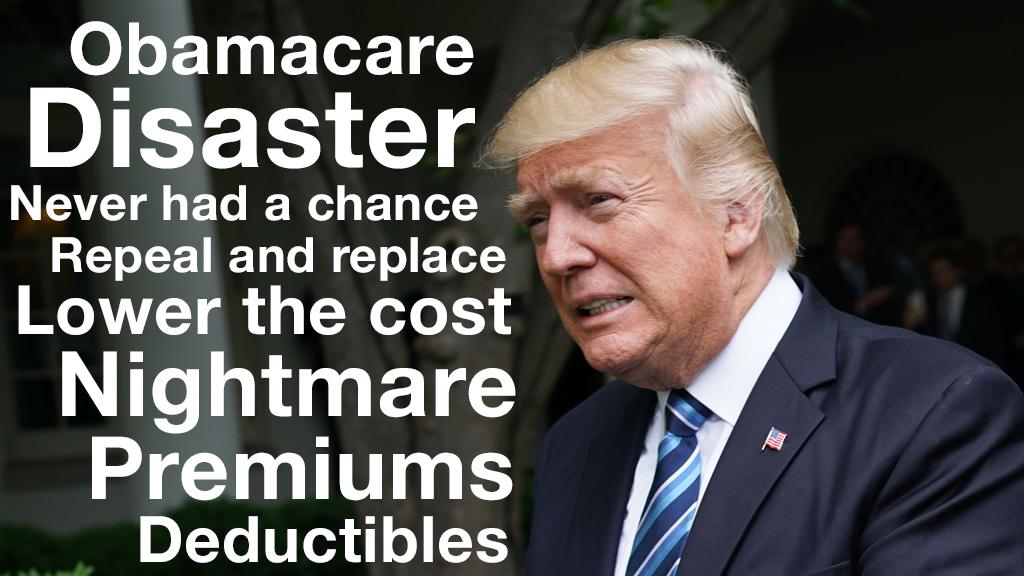Trump optimistic about healthcare bill's fate
- Published
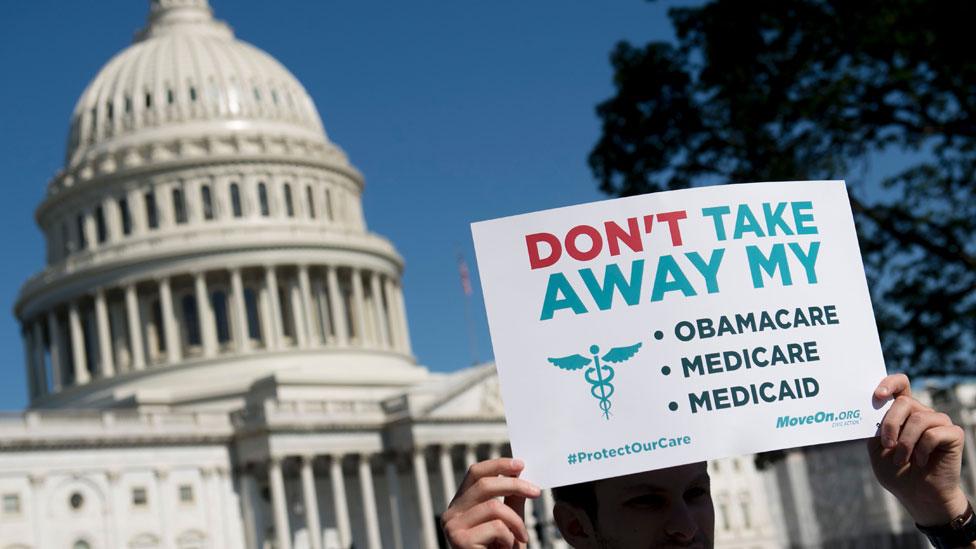
Protests against the bill have been daily since it was unveiled
US President Donald Trump has said he believes the Senate healthcare bill will "get over the line" and secure the votes it needs to pass.
A vote on the bill was postponed on Tuesday as Republican leadership seek to persuade rebels to back the plan.
Nine senators have said they will not support it, and the party can only afford to lose two for it to pass.
The plan has been widely criticised amid fears that millions will lose their health insurance coverage.
A survey published on Wednesday by USA Today, external suggests only 12% of Americans support the Senate plan.
President Barack Obama led an overhaul of the US healthcare system that has been deeply unpopular among Republicans, who have vowed to replace his signature law.
But the party cannot agree on a replacement - conservative Republicans say the Senate plan maintains too many elements of so-called Obamacare, while moderates believe it will hurt vulnerable people.
The president said on Wednesday: "I think we're going to get at least very close, and I think we're going to get it over the line."
He added that the final plan "would be so good, would be far better than Obamacare, and would be much less expensive for the people".

Poll numbers could be fatal - Anthony Zurcher, BBC News, Washington
The latest round of polling, which shows approval numbers for the Senate healthcare reform bill hovering in the mid-teens, is deadly news for Republicans.
They're caught in a political pincer not unlike the one Barack Obama and Democrats faced during the Affordable Care Act battle of 2009. Back then, conservatives viewed the legislation as an unacceptable government takeover of US healthcare. Meanwhile, some on the left disapproved because they thought the efforts didn't go far enough. They wanted full-out socialised medicine, instead of market-based insurance reform.
That left-right combo of dissatisfaction made it hard for Obamacare to ever gain majority backing.
Trumpcare faces a similar dilemma - only it's much, much worse. Democrats universally despise the proposals. The not-far-enough/too-far divide exists almost entirely within Republican ranks. Moderates think the cuts go too far. Hard-liners want a full-out repeal. None of them are happy. That leaves only a slice of a slice of the public offering any kind of support for the bill.
Republicans legislators may yet close ranks and pass something, faced with the unappealing prospect of doing nothing after promising action for seven years. One thing is certain, however. Whatever they might agree on has little chance of garnering much popular support.

What is in the bill?
The 142-page Senate bill - the Better Care Reconciliation Act of 2017 - imposes deep cuts to Medicaid, a government health programme for low-income Americans.
The bill also gives states more latitude in requiring insurers to provide essential medical benefits guaranteed under Obamacare, including emergency and maternity care and mental health services.
Details also include:
Repealing taxes on the wealthy and insurance companies
Continuing payments to health insurance companies to reimburse them for subsidies used to help pay for out-of-pocket costs for low-income Americans for at least two years
Stripping funding for US women's health group Planned Parenthood for a year
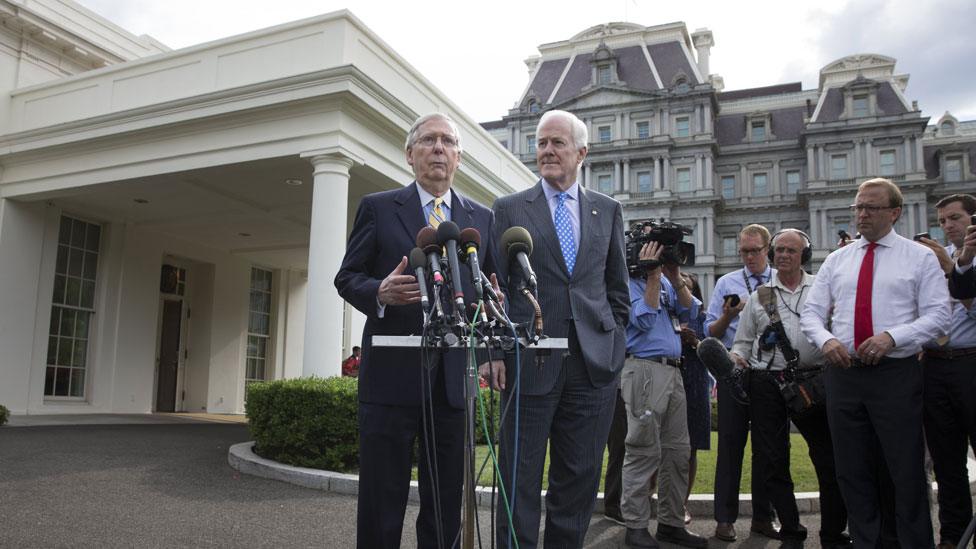
Republican senators met the president at the White House for a pep talk
Why the opposition?
Nine Senate Republicans have announced opposition to the bill.
Some have criticised it for stripping protections for the poor and elderly, as well as access to women's health. Others on the right of the party say the bill still represents government overreach.
Not one single Democrat is expected to support the proposed legislation, having lambasted it as a huge transfer of wealth from poor to rich.
Top Democrat Nancy Pelosi has warned that "hundreds of thousands" of Americans will die if the bill passes.
The American Medical Association opposed the bill because, among other concerns, it says there will be higher costs for people on low incomes.
And the American Association of Retired Persons, the nation's oldest non-profit organisation representing Americans over 50 years-old, slammed the bill as an "age tax".
What next?
Republicans reportedly want to make changes to the bill by the end of this week.
They will then send it to be analysed by the non-partisan Congressional Budgetary Office (CBO), which has said the bill in its present form would strip 22 million Americans of health insurance over the next 10 years.
Congress returns from the Fourth of July holiday on Monday 10 July, and there is a three-week window before the long summer break in which the Senate can vote on a new version.
It will then need to return to the lower chamber, the House of Representatives, for approval before being signed into law by the president.
A healthcare bill similar to the Senate version has already passed the House, but it was criticised by the president as "mean".
- Published20 September 2017
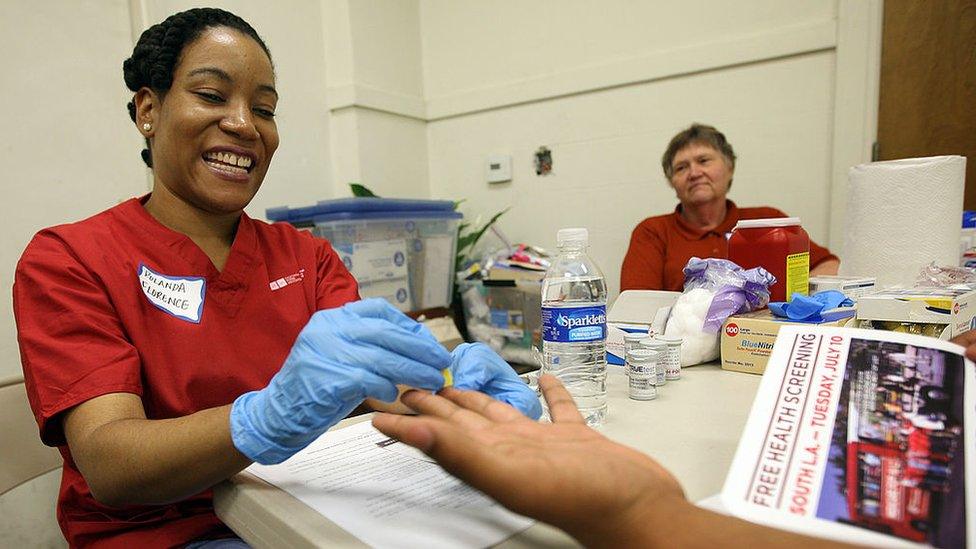
- Published29 March 2019
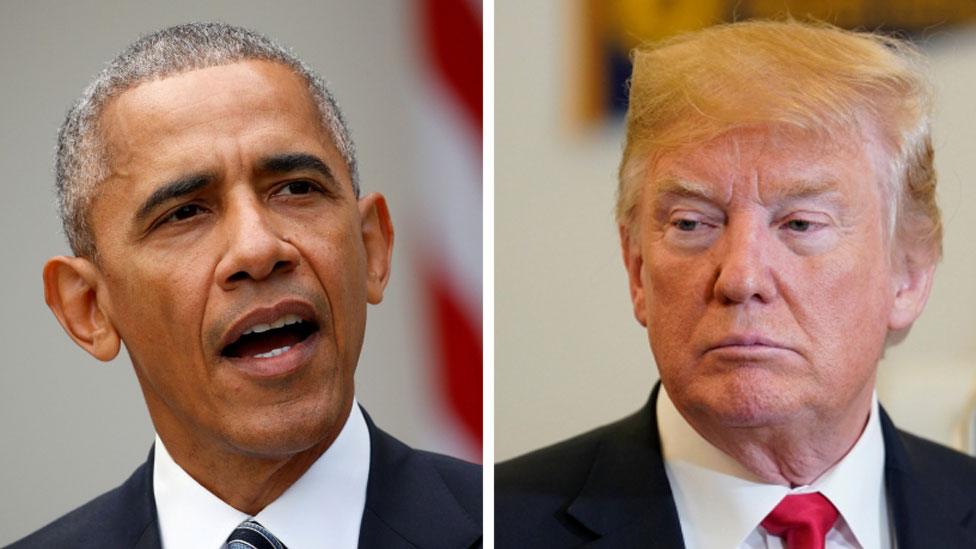
- Published24 March 2017
